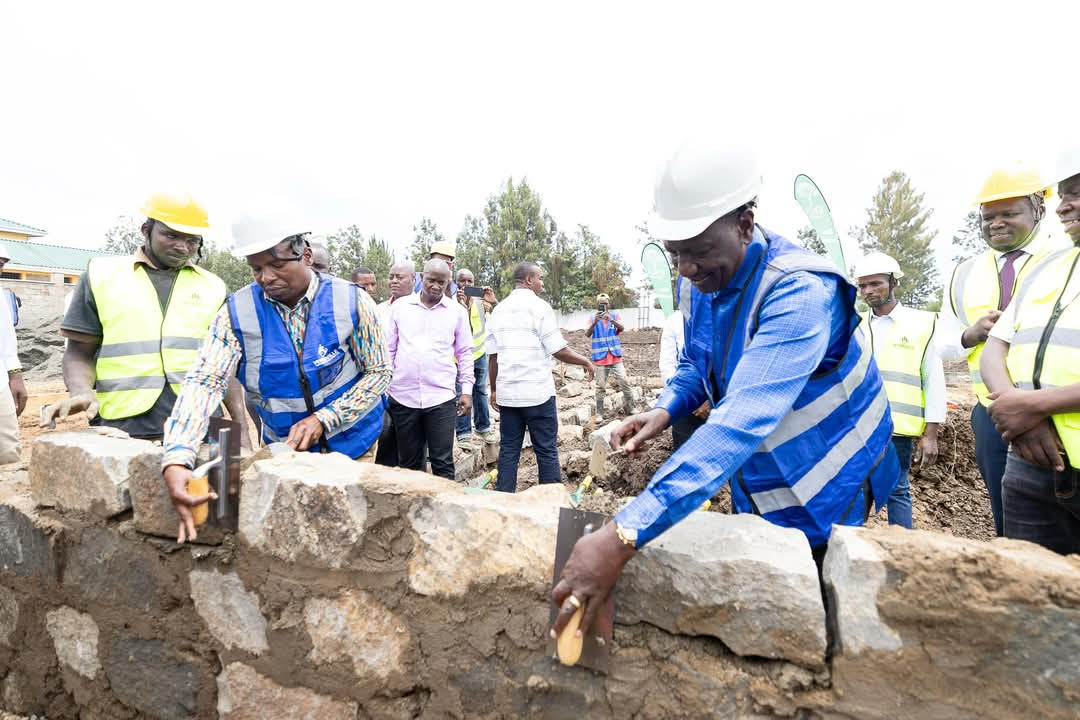Why Kenyans Should Embrace Morara Kebaso’s Funding Model For Elections
In Kenya, election campaigns are often marked by extravagant spending, political patronage, and questionable sources of funding. This has long fueled the perception that public offices are accessible only to the wealthy or those backed by powerful individuals and corporations. For true democracy to thrive, Kenya must embrace a more transparent and equitable model for funding election campaigns—one where ordinary voters, not political elites or foreign interests, take the lead in financing their preferred candidates. Morara Kebaso has come with this model yet he is getting a lot of blowback for it. Here’s why voter funding could be a game-changer for Kenyan politics.
1. Empowering the Electorate
In a system where voters fund election campaigns, the power shifts from political financiers to the people. Instead of wealthy individuals and corporations having undue influence over candidates, the electorate gains more control over the direction of political discourse. Candidates will be more accountable to their voters, knowing that their campaign funding comes directly from those they seek to represent. This could deepen the relationship between politicians and citizens, fostering a stronger sense of mutual responsibility.
When voters fund campaigns, the public can ensure that politicians focus on real issues affecting everyday Kenyans—like job creation, healthcare, and corruption—rather than on serving the interests of a few wealthy donors. The result is a more inclusive democracy where everyone has a stake in shaping the future of the country.
2. Reducing Corruption and Political Patronage
One of the key challenges in Kenya’s electoral landscape is corruption, often fueled by shadowy campaign financing. When candidates rely heavily on financial support from the wealthy elite, they are often expected to return favors once in office. This creates a vicious cycle where public resources are misappropriated, and corruption thrives. Voter-funded campaigns could help reduce this toxic relationship by limiting the influence of powerful donors who seek to buy influence.
With public funding, elected officials would be free to focus on policies that benefit the nation as a whole, rather than on protecting the interests of a few. This shift could also deter corrupt practices such as vote-buying, as candidates would no longer have the same financial pressure to win at all costs.
3. Leveling the Playing Field
Kenya’s electoral system is skewed in favor of those with deep pockets. Many talented, qualified leaders with fresh ideas are often sidelined because they lack the financial resources to mount successful campaigns. Embracing voter funding could level the playing field, allowing candidates from diverse backgrounds, including youth, women, and underrepresented communities, to compete fairly.
This would enhance political diversity, promoting a healthier democracy where the focus is on ideas and leadership skills rather than wealth. By ensuring that all candidates have access to a fair amount of funding through small contributions from voters, the electoral process becomes more representative of Kenya’s broader society.
4. Strengthening Democratic Accountability
When campaigns are funded by voters, politicians are more likely to be held accountable. Citizens who contribute to a candidate’s campaign are more invested in that candidate’s success and performance in office. This could lead to more active political participation beyond just voting, as contributors will expect regular updates, transparency, and progress on campaign promises.
The relationship between voters and their elected representatives becomes more transactional, where contributions are seen as investments in a shared vision. This accountability extends to post-election governance, reducing the likelihood of elected leaders neglecting their constituents once they secure power.
5. Encouraging Transparency and Trust
The opaque nature of Kenya’s current campaign financing raises serious concerns about transparency. Where do candidates get their money? Who funds them, and what are their motives? These questions are rarely answered satisfactorily, leaving voters in the dark about who might be pulling the strings behind the scenes.
A voter-funded system would encourage greater transparency, as all contributions would need to be publicly disclosed. This would allow voters to see exactly how campaigns are financed and to hold politicians accountable if they appear to be receiving funds from unethical sources. The increased openness would enhance trust in the electoral process, making it more legitimate in the eyes of the public.
6. Nurturing a Culture of Civic Responsibility
Funding political campaigns is a powerful way for citizens to participate in democracy beyond simply casting their vote. It encourages a culture of civic responsibility, where voters become more involved in the entire political process. When Kenyans contribute to campaigns, they are not just supporting a candidate but actively shaping the political landscape of their country.
This involvement can foster a more informed and engaged electorate, where citizens follow campaign issues closely, attend rallies, and demand accountability from their chosen leaders. Ultimately, voter-funded campaigns can cultivate a political environment where citizens are not passive spectators but active participants in shaping their nation’s future.
Conclusion
For Kenya’s democracy to reach its full potential, the way campaigns are funded must change. Voter-funded election campaigns present an opportunity to create a more transparent, equitable, and accountable political system. By empowering ordinary Kenyans to finance campaigns, reducing the influence of corrupt money, and leveling the playing field for all candidates, this model could rejuvenate Kenya’s democracy and build trust in its institutions.
If we want a future where leadership is determined by merit, ideas, and vision rather than wealth and connections, then voter funding is a step in the right direction. It’s time to embrace a new era of political participation where the people truly hold the power.









